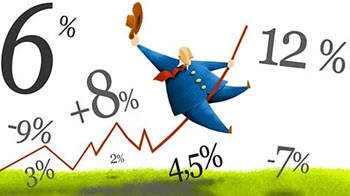SICAV is an acronym for Société d’investissement à capital variable, which is French for “investment company with variable capital”. SICAV is an open-ended investment scheme. The investor is in principle entitled to, at any time, request redemption of units and receive payment in cash for those units.
 This type of open-ended investment scheme is available in several countries, especially in Western Europe. It is important to research applicable law before you make any investment, because the exact rules can very from country to country. The Undertakings for Collective Investment in Transferable Securities Directive 2009/65/EC allows collective investment schemes to operate freely throughout the European Union on the basis of a single authorization from one member state.
This type of open-ended investment scheme is available in several countries, especially in Western Europe. It is important to research applicable law before you make any investment, because the exact rules can very from country to country. The Undertakings for Collective Investment in Transferable Securities Directive 2009/65/EC allows collective investment schemes to operate freely throughout the European Union on the basis of a single authorization from one member state.
Examples of countries where SICAV or similar is quite popular among investors are France (Société d’investissement à capital variable), Italy (Società d’investimento a capitale variabile), Spain (Sociedad de inversión de capital variable), the Czech Republic (Akciová společnost s proměnným základním kapitálem ), Luxembourg, Switzerland, and Belgium. In German, this type of company is known as Investmentgesellschaft mit variablem Kapital and in Dutch it is a Beleggingsvennootschap met veranderlijk kapitaal.
Example: This is how it works in Spain
Under Spanish law, a SICAV is a public limited company. To be a SICAV and enjoy the favorable tax treatment that comes with this classification (1% corporate income tax) the company must fulfill several requirements, including these:
- The company’s objective must be to invest in financial assets.
- The number of stockholders has to be at least 100.
- Capital must be at least €2.4 million.
There are also certain restrictions when it comes to investments that the SICAV must adhere to.
Spanish SICAV:s are supervised by the Comisión Nacional del Mercado de Valores and the Dirección General del Tesoro y Política Financiera.
Anglo-Saxon alternatives
If you are looking for something similar in the United States, you may want to check out open-ended mutual funds. In the United Kingdom, you have the open-ended investment company (OEIC)
regulated by the Open-Ended Investment Company Regulations 2001. (This type of company is also known as an investment company with variable capital, abbreviated ICVC.)
This article was last updated on: January 18, 2016